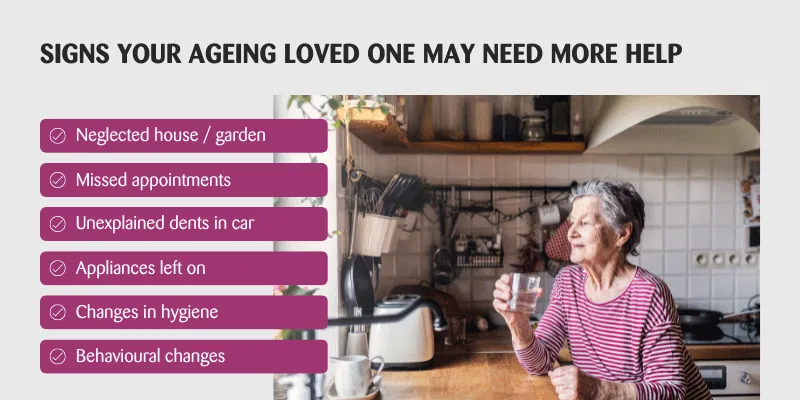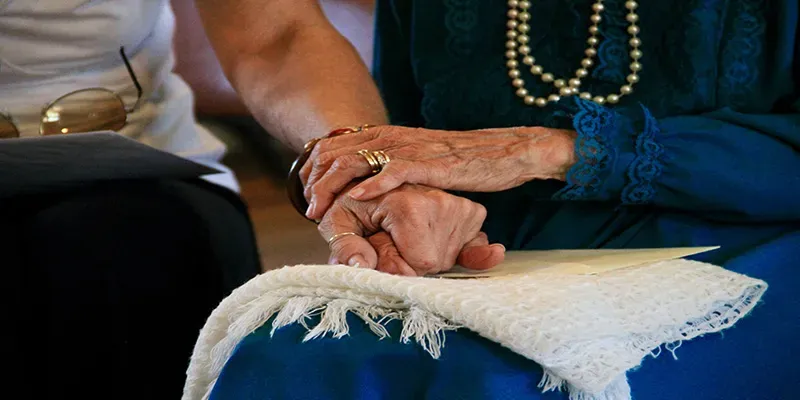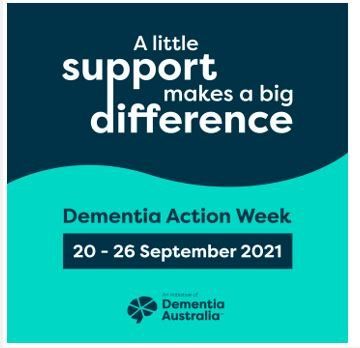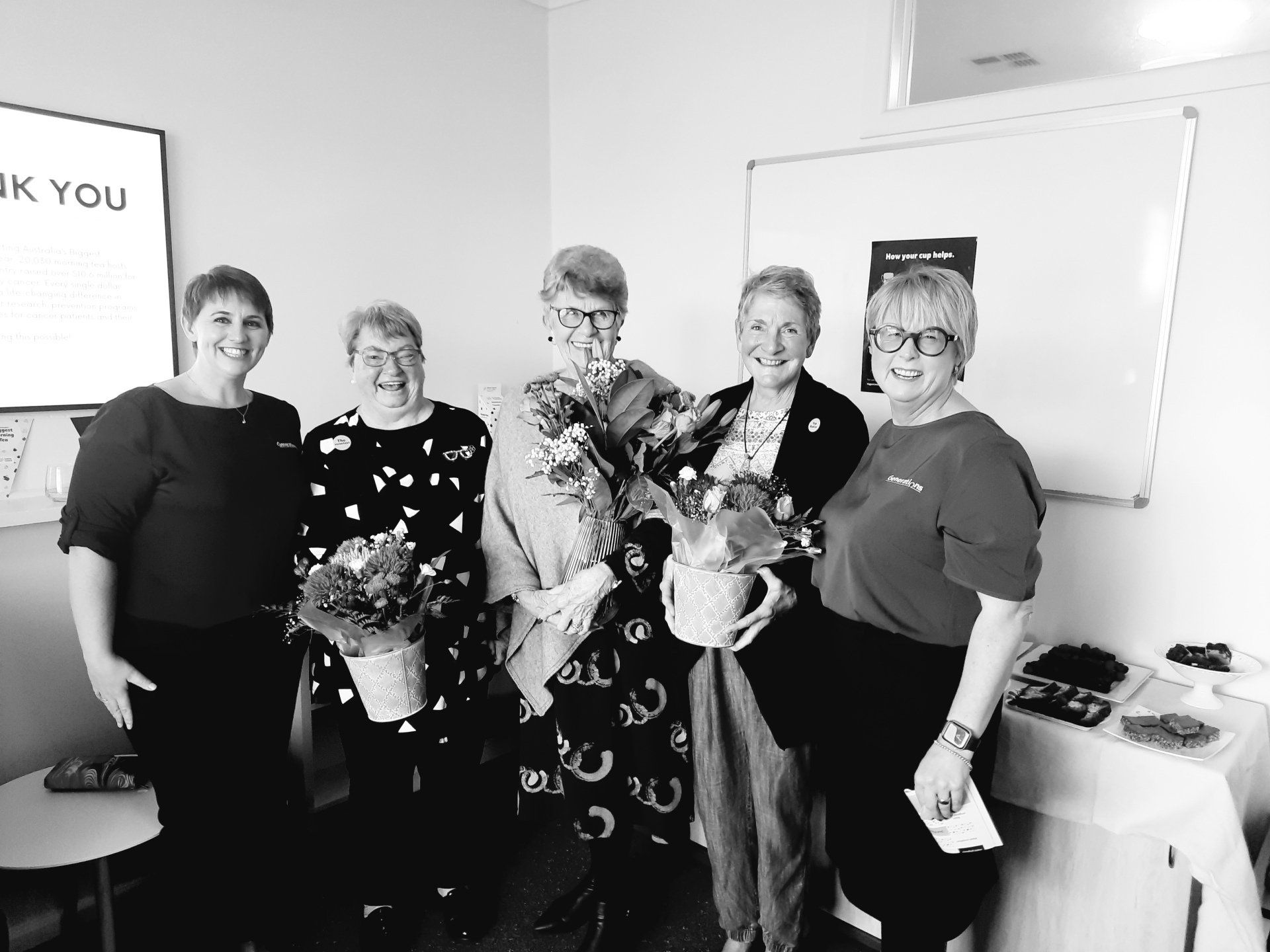
Christmas is a time for families and the New Year is for resolutions. This year, combine the two by making a resolution to pay more attention to how your older parents are coping and start family conversations to develop a plan for future care and support. You may have been busy through the year and not noticed the small things. But how well parents are coping may become more obvious when you have time to catch up with family over the festive season. You might not want to face that your parents are getting older and may need help. If you are the older person, asking for help does not have to be the start of a slippery slope. Rather, it might be the first step to having greater control over your future independence and reduce some of the daily strain on yourself and other family members. Continue reading.... IMPORTANT INFORMATION: The information (including taxation) contained within this document does not consider your personal circumstances and is of a general nature only - unless otherwise stated. You should not act on it without first obtaining professional advice specific to your circumstances. RI Advice Group Pty Ltd, ABN 23 001 774 125 AFSL 238429

The numbers can be alarming! The World Health Organisation estimates around 16% of people over age 60 have experienced some form of abuse. And most concerning is that this abuse is allegedly perpetrated by a trusted person (such as a friend or family member). World Elder Abuse Awareness Day is held every year on 15 June to shine a spotlight on issues around elder abuse and create greater awareness. The best ways to prevent abuse are awareness, education and engaging the right professionals to help with decision-making. Elder abuse can take many forms and can be physical, psychological, sexual or financial abuse. Sometimes the trusted person may not recognise that their actions are effectively a form of abuse. For example, using an Enduring Power of Attorney to start distributing a parent’s assets to family members after that person has entered residential care. You might hear this referred to as “inheritance impatience”. It may not look harmful, but if decisions are made in the family’s interests and not the older person’s best interests, this may be elder abuse. Life can change quickly. If we lose capacity and need help, we will need someone we trust to step in and make decisions for us. Who would you trust? World Elder Abuse Awareness Day gives us all a chance to think and reflect. But it is not just a one day a year issue. It is an ongoing issue and needs ongoing review. We aim to ensure all our clients are ready and have the right documents and systems in place. Talk to us today to review your frailty plans or for help with making the right decisions for an older loved one. It is never too early to start the conversation and set up appropriate arrangements. Call us on 02 6056 8777 to review your own financial situation or if you need help in your role as Enduring Power of Attorney. IMPORTANT INFORMATION: The information (including taxation) contained within this document does not consider your personal circumstances and is of a general nature only - unless otherwise stated. You should not act on it without first obtaining professional advice specific to your circumstances. RI Advice Group Pty Ltd, ABN 23 001 774 125 AFSL 238429

As parents age and need more support, families may decide to move in together and create a granny flat arrangement. This can allow generations of family members to support each other, as well as provide financial benefits. For an older parent this may offer a great care solution, but not every family can successfully navigate the pitfalls. You may need to remove rose-coloured glasses to ensure you objectively consider the family dynamics as well as the financial implications. Click below to read more....

With almost half a million people living with dementia in Australia, and another 1.6 million people involved in their care, it is likely that we are all impacted in some way. This week is Dementia Action week, putting a spotlight on how to support a person living with dementia as well as support for the carers. Understanding the experience of dementia, and making a few changes can have a beneficial impact on the person’s quality of life and help them to live more independently. When we think of dementia, we think of a person’s loss of memory and the confusion this may cause with identifying loved ones or timeframes. But people living with dementia may also have different sensory perceptions, which makes them see things differently. Dementia Australia has a range of useful tools and tips for creating a dementia-friendly environment so that the home remains familiar, but is more accessible and safer. Some of the top tips include: • Consider colour contrasts between doors and walls and between doors and architraves • Perhaps have a different colour door for the toilet • Put up signs (in Arial or Helvetica font) or photos to indicate the function of a room • Use larger size light and power switches • Set up a whiteboard or calendar to post notes and reminders. Sometimes, the home environment is not safe enough and a move into residential care may be needed. When selecting the right provider, ask lots of questions to determine how the provider can meet the needs of a person with dementia. If you are impacted by dementia or you are worried about a family member or friend, take a look at the range of information and tools at Dementia Australia’s website www.dementia.org.au . And call us on 02 6056 8777 to make an appointment to talk about the support available with Home Care Packages or residential care, what it will cost and how to manage your cashflow to pay for the care you need. IMPORTANT INFORMATION: © Aged Care Steps Pty Limited, 2021. Used with permission. The information (including taxation) contained within this document does not consider your personal circumstances and is of a general nature only - unless otherwise stated. You should not act on it without first obtaining professional advice specific to your circumstances. RI Advice Group Pty Ltd, ABN 23 001 774 125 AFSL 238429

Moving into residential care is a move to a new home. Even though this is not a home you are buying, if you think about it in terms of a property transaction it might help you to build a checklist to make the right choice. When you last bought (or rented) a home, you probably did not start your research by looking for the cheapest option, but rather you began by thinking about where you wanted to live and what sort of lifestyle you wanted. This is also a good place to start when choosing residential aged care.

If moving into residential aged care, do you really have to sell your home? What are your choices? Myths and misunderstanding about the rules can add to anxiety and confusion. The stress of moving into residential aged care can be compounded by anxiety around selling the family home. Some people may find it hard to part with their home or may not be ready to sell. This can raise concerns about how to afford the fees. Knowing that you have choices, and accessing advice to understand these choices may help to reduce stress and create a better outcome...

The time may come when you need to make financial decisions on behalf of a parent as the Enduring Power of Attorney (EPoA). Is this an honour or a burden? It can be both, so the person taking on the role needs to understand both the legal obligations as well as family responsibilities. Making decisions using an EPoA A power of attorney is given the authority to make decisions and authorise transactions in relation to property and financial affairs. If it is an enduring power, this authority remains effective even after the donor has lost mental capacity – most important for an older person....

"Risk on" markets continued • Global shares rose 1% and 1.2% in hedged and unhedged terms, respectively. The rotation to stocks benefitting from a strong economic recovery regained favour in May. Continued decline of coronavirus cases in Europe and the US helped drive these cyclical names higher. • Australian shares underperformed outperformed global shares slightly, rising 2.3% in May. The leading sectors were financials (up 4.4%), healthcare (up 3.5%) and consumer discretionary stocks (up 3.4%). Technology (down 9.9%), Utilities (down 7%) and Energy (down 1.8%) were amongst the worst performers. Weakness in buy-now, pay-later operator Afterpay (down 21.1%) drove the tech sector result.....




